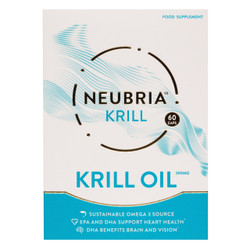
Vitamins To Take In Your 30s
For a lot of women, the 30s are a turning point when it comes to health. The days of staying out late or all night and indulgences in food and drink are usually lower down in priority. Often, women will seek out the best vitamins to take in their 30's to help support the changes that are clearly occurring within their bodies.
A healthy, varied and balanced diet is nevertheless a good starting point to provide the body with all the essential vitamins, however we are all prone to eating food groups that we like and so often we may miss out on some of the nutrients which are required by the body on an ongoing basis. This is where vitamins to take in your 30s can bridge the gap, particularly a quality food-state multivitamin such as Daily Multivitamins One-A-Day.
DoSe Daily Multivitamins One-A-Day is a comprehensive one-a-day multivitamin and mineral supplement which also provides fruit and vegetable extracts known for their antioxidant and protective compounds. This supplement, however, is not suitable for vegans.
Vegans should opt for Terra Nova’s Living Multinutrient Complex which is also food-based and provides nutrients in a base of green foods which contain digestive enzymes to help enhance absorption.
If you cannot swallow tablets or capsules, then Source of Life Gold Liquid is one of a few food-state liquids providing vitamins, minerals, essential fatty acids as well as fruit and vegetable extracts.
What if I am planning to conceive?
If you are planning to conceive, then the multivitamins mentioned above would not be recommended. You need to consider a food-state prenatal multivitamin such as Wild Nutrition’s Women’s Food Grown Fertility supplement. This supplement works to support preconception and provides the recommended strength of vitamins and minerals without overloading the body. Specific nutrients such as NAC and Cordyceps support the body’s natural balance of hormones. It is perfectly safe to take this supplement for the first few weeks of pregnancy but after this it would be prudent to change over to Wild Nutrition’s Food Grown Pregnancy.
Wild Nutrition’s Food Grown Pregnancy is formulated to deliver a balanced blend of vitamins and minerals for you and the baby. This supplement provides a good strength of calcium, which is important during pregnancy, as well as iron which is required to manufacture red blood cells and haemoglobin for both you and the baby. Iodine is included in just the right strength for the healthy development of the baby’s brain. Folate, the natural form of folic acid, is included in the formulation to prevent neural defects of the spine and brain in the baby.
Is there any other vitamin to take in 30s?
Regardless of whether you are pregnant or not, omega 3 supplements in your 30s are important. The body cannot manufacture omega 3 essential fatty acids, EPA and DHA, which are required for a myriad of processes including the manufacture of hormones, structures of the nervous system, moving oil-soluble vitamins in and out of cells and for calming down inflammation within the body.
Whilst manufacturers try and market omega 3 supplements specifically for use during pregnancy, you can just take a high strength quality fish oil or krill oil supplement. I prefer a fish oil supplement such as Life & Soul Pure Omega 3 Fish Oil capsules for use during pregnancy for their higher content of DHA which is essential for the formation of the nervous system in the baby.
If you are not pregnant, then Neubria Krill Oil capsules are my preferred choice because krill oil is the cleanest source of omega 3’s; the essential fats within krill oil are in a form that are absorbed rapidly by the body, and the oil is obtained from a sustainable source. All this with no fishy after-taste!
Vegans obviously cannot take krill or fish oil supplements and should consider taking Echiomega.
Do I need any other vitamins?
Having decided to take a multivitamin and an omega 3 supplement of your choice, it might be worth considering the addition of a probiotic supplement. Many women will have taken several rounds of antibiotics by the time they reach their 30s which can disrupt the delicate balance of friendly bacteria within the gut. A diet low in healthy fats, highly processed foods as well as stress can all disturb this delicate balance.
These friendly probiotic bacteria help to digest food, supply energising B vitamins in the gut, remove acids and toxins from the gut and crucially are responsible largely for the healthy function of our immune system. They are also invaluable for reducing recurrences of urinary tract infections, irritable bowel and diarrhoea. A multi-strain allergen-free probiotic supplement that I would recommend is Mega Probio which delivers eight strains of beneficial bacteria that can colonise the gut and perform their myriad of roles.
Can I take collagen in my 30s?
Trying to maintain healthy collagen production is important in your 30s in helping to preserve youthful skin. It is important to maintain a healthy diet, use skincare containing peptides and vitamin C, maintain hydration levels, and of course, use sun protection. This is also the time when you may wish to consider taking a collagen supplement such as DoSe Collagen Tripeptide Complex since the decline in collagen levels is far greater in this decade than in your 20s.
Additional supplements for some very common concerns
Whilst the above list of supplements are absolute essentials in your 30s, there are of course additional supplements which may or may not be required, so I have listed below some very common concerns in your 30s and the appropriate supplements that may be used.
Anaemia – a very common disorder affecting almost a third of women, the symptoms of anaemia include tiredness, restless legs, headaches and a general loss of energy. Anaemia is associated with low iron stores which aside from tiredness can also result in hair loss. Consider non-constipating iron supplements such as Iron Bisglycinate or Iron Daily Oral Spray.
PMS and Anxiety – magnesium is a key mineral in the body involved in some 300 biochemical reactions which means that the body’s requirements for this mineral are high and often not met from our diet. Magnesium is required for the production of hormones as well as for relaxing making it very useful for managing some of the symptoms of PMS. I would be inclined to use Viridian Nutrition’s Magnesium B6 and Saffron which alleviates many of the symptoms of PMS.
The supplements listed in this editorial are in my opinion some of the best options available. One of the most common questions that I get emails about is when to take vitamins. Vitamins and mineral supplements are best taken with food because our body releases enzymes when we eat food. Assuming our digestive system is not compromised, then sufficient enzymes will be released ensuring that each supplement is broken down efficiently so that our body can absorb these nutrients.
DISCLAIMER: The views, opinions and information expressed in this article and on Victoriahealth.com Ltd are those of the author(s) in an editorial context. Victoriahealth.com Ltd cannot be held responsible for any errors or for any consequences arising from the use of the information contained in this editorial or anywhere else on the site. Every effort is made by the editorial and content team to see that no inaccurate or misleading information, opinion or statement appear, nor replace or constitute endorsement from medical bodies or trials unless specified. Victoriahealth.com Ltd accept no liability for the consequences of any inaccurate or misleading data, information, opinion or statement. Information on Victoriahealth.com Ltd and in the editorials is provided for informational purposes only and is not intended as a substitute for the advice provided by your physician or other healthcare professional. You should not use the information on this website or in the editorials for diagnosing or treating a health concern or disease, or for the replacement of prescription medication or other treatment.













